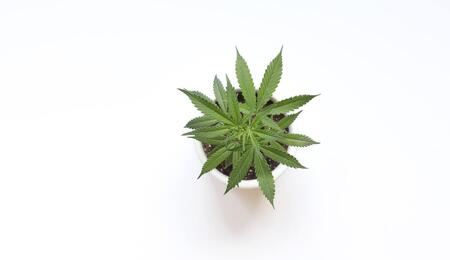MORE Act is Back in the Spotlight

The U.S. House of Representatives is due to take up a bill that seeks to federally legalize marijuana for the second time in its history, congressional leadership confirmed last week. It may happen as early as this week. The vote concerns the Marijuana Opportunity, Reinvestment and Expungement (MORE) Act, a bill backed by House Judiciary Committee Chairman Jerrold Nadler (D-NY). This is an upgraded version of the act, an earlier version of which passed the House vote in 2020 but later failed to progress in the Senate.
The MORE Act seeks to remove marijuana from the list of federally controlled substances and promote social equity. Under the act, past convicts would be allowed to have their records expunged. Furthermore, a federal tax on cannabis would be introduced that would use the revenue for community support and reinvestment.
Notably, the bill contains language to create a pathway for resentencing those incarcerated for marijuana-related offenses, protect immigrants from being denied citizenship on the basis of marijuana, and prevent federal agencies from stripping individuals of public benefits or security clearance due to marijuana use.
In preparation for a vote, lawmakers from the House Judiciary Committee issued an extensive, 458-page report. In the background and need for legislation section, it says, "Enforcement of marijuana laws has been a key driver of mass criminalization in the United States."
"The drug war has produced profoundly unequal outcomes across racial groups, manifested through significant racial disparities throughout the criminal justice system," it says.
The report details the consequences of marijuana-related arrests and convictions, including the possible loss of job opportunities, voting rights, housing, education, government assistance, etc. The report goes on to state that such exclusions effectively "create an often-permanent second-class status for millions of Americans."
"Like drug war enforcement itself, these consequences fall disproportionately on people of color," the report says. "For non-citizens, a conviction can trigger deportation, sometimes with almost no possibility of discretionary relief."
The Rules Committee will officially take up the act in a meeting on Wednesday (Mar 30) to prepare it for floor action, where members will decide if any proposed amendments can be made in order. Initially scheduled for Monday, the hearing was pushed back two days over the weekend for unknown reasons.
The introduction of another vote on the marijuana legalization bill comes weeks after congressional Democrats held a closed-to-press session during a party retreat that is known it has included a panel focused on reform legislation.
In anticipation of the vote, legal experts are confident the MORE Act will pass again during the House vote. However, it is uncertain whether the bill survives the Senate. The MORE Act faced a wall in a Republican-controlled Senate the first time it was brought on the table. The bill's most vocal opposition now comes from other cannabis industry allies in D.C., with Senate Majority Leader Chuck Schumer among those who vow to block all cannabis reform bills apart from his own proposed solution, which is dubbed CAOA. The details of Schumer's bill are due to be uncovered next month.
While cannabis stocks surged ahead of the upcoming House vote on marijuana legalization, experts say any permanent, meaningful legislative change that echoes throughout the sector is unlikely before 2024.



